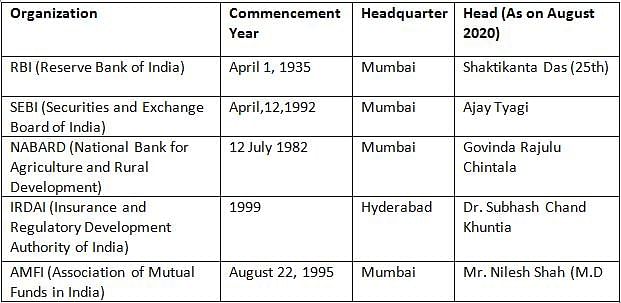Banking Exams Exam > Banking Exams Tests > Test: Investment & Exchange - Banking Exams MCQ
Test: Investment & Exchange - Banking Exams MCQ
Test Description
10 Questions MCQ Test - Test: Investment & Exchange
Test: Investment & Exchange for Banking Exams 2024 is part of Banking Exams preparation. The Test: Investment & Exchange questions and answers have been prepared
according to the Banking Exams exam syllabus.The Test: Investment & Exchange MCQs are made for Banking Exams 2024 Exam.
Find important definitions, questions, notes, meanings, examples, exercises, MCQs and online tests for Test: Investment & Exchange below.
Solutions of Test: Investment & Exchange questions in English are available as part of our course for Banking Exams & Test: Investment & Exchange solutions in
Hindi for Banking Exams course.
Download more important topics, notes, lectures and mock test series for Banking Exams Exam by signing up for free. Attempt Test: Investment & Exchange | 10 questions in 10 minutes | Mock test for Banking Exams preparation | Free important questions MCQ to study for Banking Exams Exam | Download free PDF with solutions
Detailed Solution for Test: Investment & Exchange - Question 1
Test: Investment & Exchange - Question 2
Liquid funds are the funds that invest in securities with a maturity period of upto ______________ days.
Detailed Solution for Test: Investment & Exchange - Question 2
| 1 Crore+ students have signed up on EduRev. Have you? Download the App |
Test: Investment & Exchange - Question 3
In the equity linked savings scheme what is the minimum lock-in period?
Detailed Solution for Test: Investment & Exchange - Question 3
Test: Investment & Exchange - Question 4
Which among the following authority governs the mutual funds business in India?
Detailed Solution for Test: Investment & Exchange - Question 4
Test: Investment & Exchange - Question 5
Which of the following statements holds true about Mutual Funds?
Detailed Solution for Test: Investment & Exchange - Question 5
Test: Investment & Exchange - Question 6
Which of the following are correct regarding the Mutual Funds?
I. Custodian of the Mutual Funds should be registered with RBI
II. Mutual Funds can not invest in debt securities
III. In India, the Mutual Fund Industry started in 1991
Detailed Solution for Test: Investment & Exchange - Question 6
Test: Investment & Exchange - Question 7
The first Mutual funds in India was created in which year?
Detailed Solution for Test: Investment & Exchange - Question 7
Test: Investment & Exchange - Question 8
Which of the following statements holds true about Mutual Funds?
Detailed Solution for Test: Investment & Exchange - Question 8
Detailed Solution for Test: Investment & Exchange - Question 9
Test: Investment & Exchange - Question 10
Which among the following are the types of mutual funds?
Detailed Solution for Test: Investment & Exchange - Question 10
Information about Test: Investment & Exchange Page
In this test you can find the Exam questions for Test: Investment & Exchange solved & explained in the simplest way possible.
Besides giving Questions and answers for Test: Investment & Exchange, EduRev gives you an ample number of Online tests for practice
Download as PDF


















